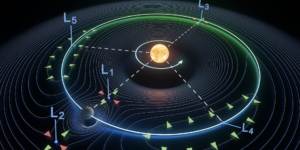
(Photo courtesy of Maryam Shanechi)
Maryam Shanechi, Dean’s Professor and Founding Director of the USC Center for Neurotechnology, has been selected as a finalist for the prestigious Blavatnik National Awards for Young Scientists, announced Wednesday by the Blavatnik Family Foundation and the New York Academy of Sciences.
The award considers nominees from institutions all over the U.S. to honor “America’s most innovative, faculty-ranked scientists and engineers who are under the age of 42” since 2007, according to a statement. This year there were 267 nominees from 134 institutions, among which 28 finalists were selected across three broad disciplinary categories of Life Sciences, Chemistry, and Physical Sciences and Engineering. Shanechi was selected for her “pioneering brain-machine interfaces that can model, decode, and control complex neural activity patterns by the intersection of engineering, computing, and neuroscience.”
Shanechi develops novel AI and engineering tools that look at complex brain signals to discover how the brain gives rise to our emotions and behaviors. She also uses these tools and discoveries to develop neurotechnologies that could transform treatments for disabling brain disorders, such as major depression, by personalizing therapies to a patient’s individualized needs.
Indeed, Shanechi and her team have developed AI models that can decode brain states such as mood or movement from neural signals and can map out where in the brain mood-predictive information lies. She has also built AI models that can predict the effect of therapies such as electrical stimulation on brain signals and mood symptoms. Combined, these advances can be used to predict the right dose of stimulation therapy for a given patient based on their own mood symptoms. These advances can also be used to discover where and how the brain represents our emotions and controls our behaviors.
“By merging neuroscience, AI and engineering, we try to understand how mental states in an individual are changing over time, and how that individual responds to therapy. We then use this understanding and our models to precisely tailor therapies to the individual’s needs,” Shanechi says. “We hope that our technologies can help patients with mental health conditions for whom current treatments are ineffective. I am truly honored to be named a Blavatnik National Awards Finalist for our work.”
All the finalists will be honored in a ceremony Sept. 19 at the American Museum of Natural History in Manhattan.
Published on July 26th, 2023
Last updated on June 27th, 2025













